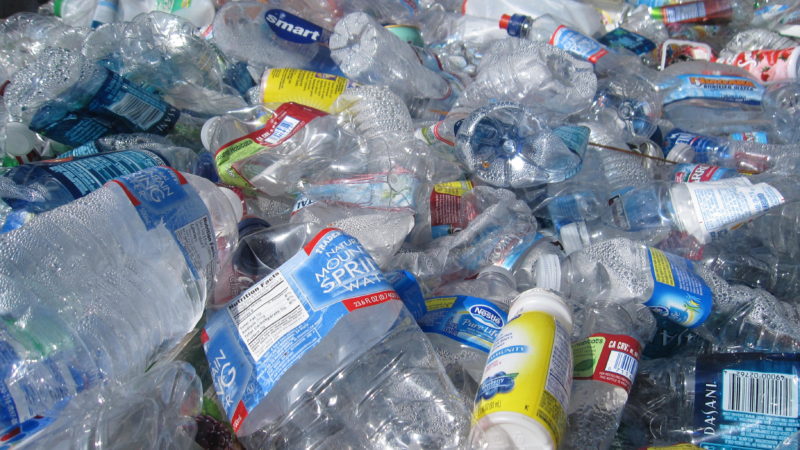Environment Sec Michael Gove did good introducing refundable fee for recyclable bottles - but there's more to be done.

Campaigners welcomed the government’s newest recycling scheme, where consumers would be made to pay a returnable deposit on single use drinks containers. But not only did it come after much delay, it is also only a small step in the fight against plastic waste.
Here are five more steps the government to take ASAP:
1. Make the scheme compulsory
Greenpeace UK was happy to celebrate the introduction of the bottle deposit programme but warned that ” the devil will be in the detail”. Making the scheme nationwide and compulsory to all retailers would have a much larger and efficient impact on plastic pollution in the country.
The group’s oceans campaigner, Elena Polisano, said:
“Both the public and businesses are in favour of a strong deposit return scheme, which is a tried and tested way to increase recycling rates. Done in the right way, a deposit return scheme could dramatically reduce the amount of single-use plastic ending up in our environment.”
2. Introduce a latte levy
Next up on the list of unnecessary and polluting things to ban from British consumer habits should be the ubiquitous disposable coffee cup. A group of MPs is currently pushing for a 25p levy on the take-away cups to be introduced, but Environment Secretary Michael Gove has so far prevaricated on the measure.
An estimated 2.5 billion paper cups get thrown away in Britain every year.
Environmental Audit Committee chair and Labour MP Mary Creagh said in January:
“Almost none [of the consumer paper cups] are recycled and half a million a day are littered. Coffee cup producers and distributors have not taken action to rectify this and government has sat on its hands.”
Individual coffee shops have introduced discounts for customers carrying their own reusable cups, with chain Pret a Manger deducting up to 50p from their hot drinks.
3. Push for plastic free super markets
Another of Greenpeace UK’s flagship campaigns is to make British supermarkets plastic free. The government could play a leading role in this by offering businesses some incentives. Britain buys an estimated 13 billion plastic bottled drinks every year, many of which end up in our oceans, endangering the lives and livelihoods of dozens of species.
Frozen goods supermarket Iceland announced earlier this year its own-brand packaging will be fully plastic free by 2023.
4. Bring single use plastic target to 2030
The Greens have been banging on about this question for a while, arguing that the government’s 25-year timetable is too slow. Needless items such as six-pack rings and drinking straws are part of the 800,000 tonnes of plastic packaging sold in the UK each year. Campaigners argue that urgent action is needed to prevent any more animal deaths from these materials.
Green Part co-leader Caroline Lucas MP said:
“If ministers really are serious about tackling the scourge of plastic pollution they will revise their utterly unambitious target of eliminating unavoidable single use plastics by 2042.”
5. Bring in a new Environmental Protection Act
Since Britain’s exit from the European Union has been voted on in 2016, campaigners and politicians have raised concerns over the impact it would have on environmental legislation. Many of the current laws applied in Britain safeguarding flora and fauna were Brussels directives, which would have no legal bind after Brexit. The Environmental Audit Committee has called for the current laws to be guarded and their enforcement to be continued through means of a new Environmental Protection Act.
Greener UK chair Shaun Spiers recently said:
“There are big questions about whether the Government is willing to devote the resources necessary to deliver a green Brexit.”
Joana Ramiro is a reporter for Left Foot Forward. You can follow her on Twitter for all sorts of rants here.
To reach hundreds of thousands of new readers we need to grow our donor base substantially.
That's why in 2024, we are seeking to generate 150 additional regular donors to support Left Foot Forward's work.
We still need another 117 people to donate to hit the target. You can help. Donate today.



